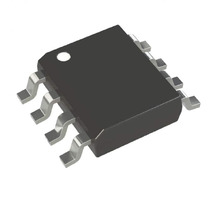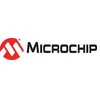Manufacturer Part Number
MCP2021-330E/SN
Manufacturer
Microchip Technology
Introduction
The MCP2021-330E/SN is a robust LINbus transceiver from Microchip Technology, serving as a critical interface in automotive and industrial communication networks.
Product Features and Performance
Integrated LIN transceiver with a LIN 1.x, 2.x, and J2602 compliant interface.
Offers a single driver/receiver interface for streamlined communication.
Half-duplex functionality for bidirectional communication on one line.
Receiver hysteresis of 175 mV for improved noise resilience.
Operates on a wide voltage supply range of 6V to 18V.
Suited for high-temperature environments with operating temperatures between -40°C and 125°C.
Product Advantages
High integration level reduces external component requirements.
Enhanced electromagnetic compatibility (EMC) for reliable communication in noise-prone applications.
Robust design capable of withstanding harsh automotive environments.
Direct support for battery-connected applications with wide voltage range.
Key Technical Parameters
Number of Drivers/Receivers: 1/1
Receiver Hysteresis: 175 mV
Voltage Supply: 6V ~ 18V
Operating Temperature: -40°C ~ 125°C
Package / Case: 8-SOIC
Protocol: LINbus
Quality and Safety Features
Built to meet rigorous automotive quality standards.
Features include thermal shutdown and short-circuit protection for improved safety and reliability.
Compatibility
Easy integration with microcontrollers in automotive and industrial applications.
Designed for compatibility with LINbus protocol specifications.
Application Areas
Automotive networks: Body control modules, sensors, and actuators.
Industrial automation: Local interconnected devices and sensors.
Product Lifecycle
Obsolete: This product is marked as obsolete, indicating the end of its production lifecycle.
Users should seek replacements or upgrades from Microchip’s current product offerings.
Several Key Reasons to Choose This Product
Reliability and durability in automotive and industrial environments.
Compliance with established LINbus protocol standards ensures interoperability.
Wide operating temperature and voltage range cater to a broad array of applications.
Despite its obsolescence, it remains a viable option for legacy systems requiring maintenance or minor upgrades.



 MCP2016DR47FDK America
MCP2016DR47FDK America MCP2021A-330E/MDMicrochip
MCP2021A-330E/MDMicrochip